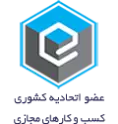Custom Coded Website Design vs. Ready-Made CMS Platforms

Choosing between custom coded website design and using ready-made CMS platforms depends on your specific needs, budget, and technical expertise. Each approach has its own advantages and disadvantages, and the best choice for you will vary depending on your unique circumstances. Here's a detailed comparison of the pros and cons of each method
Advantages of Custom Coded Website Design:
-
Complete Customization: Custom coded website design allows you to tailor every aspect of your website to meet your exact requirements and create a truly unique online presence.
-
Optimal Performance: With custom coding, you can optimize your website's code for maximum speed and efficiency, ensuring a seamless user experience.
-
High Security: Custom coding enables you to implement robust and customized security measures, safeguarding your website from cyberattacks and data breaches.
-
Superior Flexibility: Custom coding grants you complete control over your website's structure and functionality, allowing you to make modifications and updates without limitations.
-
Distinctive Branding: Custom coded websites can have a unique and visually appealing design that sets your brand apart from competitors.
-
Platform Independence: Custom coded websites are not tied to any specific platform or CMS, providing you with the freedom to switch hosting providers or migrate your site as needed.
Advantages of Ready-Made CMS Platforms:
-
Rapid Development: Ready-made CMS platforms allow you to build and launch your website quickly and efficiently, without the need for extensive coding expertise.
-
Cost-Effectiveness: Developing a website with a CMS platform is generally less expensive than custom coding, making it a budget-friendly option.
-
Ease of Use: Many CMS platforms offer user-friendly interfaces and drag-and-drop functionalities, enabling you to manage your website without advanced technical knowledge.
-
Regular Updates: Reputable CMS platforms receive regular updates that include security patches, bug fixes, and new features, ensuring your site remains up-to-date and secure.
-
Abundant Plugins and Themes: CMS platforms typically offer a wide range of plugins and themes that can extend the functionality and customize the appearance of your website.
-
Large Support Community: Most popular CMS platforms have active and supportive communities where you can find answers to your questions and receive assistance with troubleshooting issues.
Disadvantages of Custom Coded Website Design:
-
High Cost: Custom coded website design and development is typically more expensive due to the higher level of expertise and time required.
-
Time-Consuming: The development and launch process for custom coded websites usually takes longer and may involve delays.
-
Specialized Team Requirement: A team of skilled and experienced programmers is often needed for the design and maintenance of custom coded websites, which can be costly and complex.
-
More Complex Maintenance and Support: Maintaining and supporting custom coded websites can be more intricate and expensive.
-
Limited Scalability: Custom coded websites may face scalability issues when dealing with large and complex projects.
- Lack of Quick Upgradability: Adding new features and functionalities to custom coded websites can be time-consuming and costly.
Disadvantages of Ready-Made CMS Platforms:
-
Limited Customization: Ready-made CMS platforms often have limitations in customization, and you may not be able to meet all your specific requirements.
-
Lower Security: Websites built with ready-made CMS platforms are more prone to security attacks, especially if using unreliable plugins and themes.
-
Slower Speed: Websites built with ready-made CMS platforms may experience slower performance due to additional code and plugins.
-
Platform Dependency: Using ready-made CMS platforms makes you dependent on the platform and its updates, which could cause issues if sudden changes occur.
-
Ongoing Maintenance Requirement: Continuous maintenance and updates are essential to keep websites built with ready-made CMS platforms secure and functional.
-
Limited Scalability: Ready-made CMS platforms may face scalability limitations when dealing with large and complex projects.
Choosing between custom coding and using ready-made CMS platforms depends on your needs, budget, and time constraints. If you're looking for a unique website with specific features and high security, and you have no budget or time limitations, custom coding is the best option. However, if time and cost are important to you and you need a website with standard features, using a ready-made CMS can be a good choice. Both methods have their own advantages and disadvantages, and making the right choice can ensure the success of your project.




